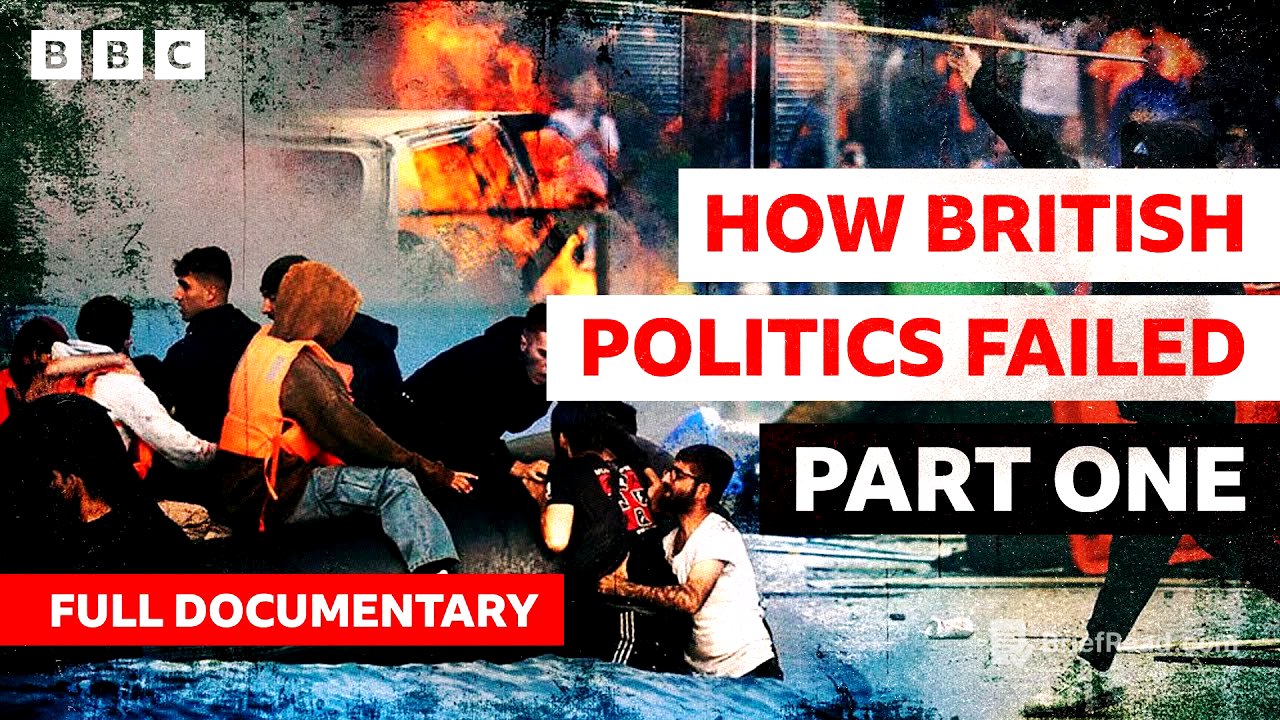TLDR;
This video explores the history of immigration policy in Britain, focusing on the period from the late 1990s through the 2010s. It examines how immigration became a central political issue, driven by economic factors, public concerns about social cohesion and pressure on public services, and the rise of anti-immigration sentiment. The video also highlights the role of the media, political parties, and advocacy groups in shaping the debate around immigration, and the challenges faced by successive governments in managing immigration levels and public perceptions.
- Immigration became a central political issue in Britain from the late 1990s through the 2010s.
- Economic factors, public concerns about social cohesion, and the rise of anti-immigration sentiment fueled the debate.
- The media, political parties, and advocacy groups played significant roles in shaping public opinion.
- Successive governments faced challenges in managing immigration levels and public perceptions.
Introduction: Linking Immigration to EU Membership [0:07]
The video begins by highlighting the strategy of linking immigration with membership in the European Union to change public perception. It acknowledges the contributions of immigrants to the nation while noting the public's confusion between immigrants, asylum seekers, and illegal immigrants. The segment also touches on anti-immigration sentiments and the idea of prioritizing British jobs for British workers.
The Labor Government's Approach to Immigration (1997-2010) [2:12]
In the late 1990s, the Labor government recognized a shortage of skilled workers and considered relaxing immigration rules to address it. The government viewed migration as economically beneficial, contributing more in taxes than migrants consumed in public services. Tony Blair supported informing the public about these benefits to encourage highly skilled migrants. However, some politicians felt the scale of migration was unprecedented and strict limits were needed to preserve the country's nature.
Migration Watch and the Rise of Anti-Immigration Sentiment [5:51]
Migration Watch emerged in the early 2000s, providing analysis and projections of migration figures. While their data was useful, their policy recommendations were often seen as xenophobic, focusing on migrants undermining British culture. Despite the risk of being labeled racist, some politicians found Migration Watch's data essential for backing up their arguments with rigorous academic sources.
Post-9/11: Asylum Seekers and Security Concerns [7:11]
Following the 9/11 attacks, the focus shifted to asylum seekers and security concerns. Asylum seekers are individuals seeking protection under international law, often forced to leave their countries due to life-threatening situations. However, many were viewed as economic migrants exploiting the system, leading to stricter legislation and efforts to reassure the public that the government had control over the issue.
The Media's Role in Shaping Public Opinion [10:03]
The media, particularly tabloid newspapers like The Sun and the Daily Mail, played a significant role in shaping public opinion on immigration. Stories about asylum seekers "milking the country" and security threats fueled anger and fear among readers. Sensationalized stories, such as asylum seekers eating swans, were published without proper verification, contributing to a negative perception of immigrants.
Public Concerns and Political Responses [16:07]
Public debates reflected concerns about asylum seekers causing social unrest and racial tension. Some believed Britain was a "soft touch" for asylum seekers, while others worried about the strain on public services. Politicians and the media often confused immigrants, asylum seekers, and illegal immigrants, further fueling public anxiety.
The Debate Over Numbers and Limits [21:48]
The Conservative Party, under leaders like Michael Howard, focused on net migration figures to highlight the scale of immigration. They argued that the growing numbers were unsustainable and needed to be controlled. While some, like David Blunkett, believed there was no notional maximum population, others emphasized the importance of robust projections and setting limits.
EU Enlargement and Its Impact on Immigration [29:07]
The EU enlargement in 2004 led to a significant increase in migration from Eastern European countries to the UK. While the government initially prioritized the economic benefits of filling job vacancies, the influx of migrants put pressure on public services and fueled public concerns about fairness. Nigel Farage and UKIP capitalized on these concerns, using anti-European rhetoric to highlight fears about foreigners.
The 2008 Financial Crisis and Anti-Immigrant Sentiment [40:29]
The 2008 financial crisis exacerbated anti-immigrant sentiment as economic insecurity and unemployment rose. The slogan "British jobs for British workers" became popular, but was criticized for being misleading and adopting rhetoric from the far right. The British National Party (BNP) gained support by exploiting these sentiments, leading to increased racial tensions and social unrest.
The 2010 General Election and the Conservative Pledge [44:58]
In the lead-up to the 2010 general election, the Conservative Party pledged to reduce net migration to the "tens of thousands." This commitment was influenced by Migration Watch's data and the public's concerns about the pressure on public services. However, economists warned that achieving this target would require severe restrictions on skilled workers and students, potentially damaging the economy.
The Coalition Government's Struggle to Meet the Target [51:20]
The coalition government, formed by the Conservatives and Liberal Democrats, struggled to meet the net migration target. The Liberal Democrats disagreed with the target, and various government departments sought exemptions for vital workers. Despite efforts to reform welfare and training policies, the government faced challenges in controlling migration from Europe and addressing the underlying economic factors driving immigration.
Brexit and the Promise of an Australian-Style Points-Based System [57:44]
The video concludes by noting that Brexit was partly driven by the desire to control immigration. Politicians promised an Australian-style points-based system, but the immigration policy put in place after Brexit was criticized for being more about rhetoric than reality. The video ends by highlighting the ongoing challenges of managing immigration and addressing public concerns.









